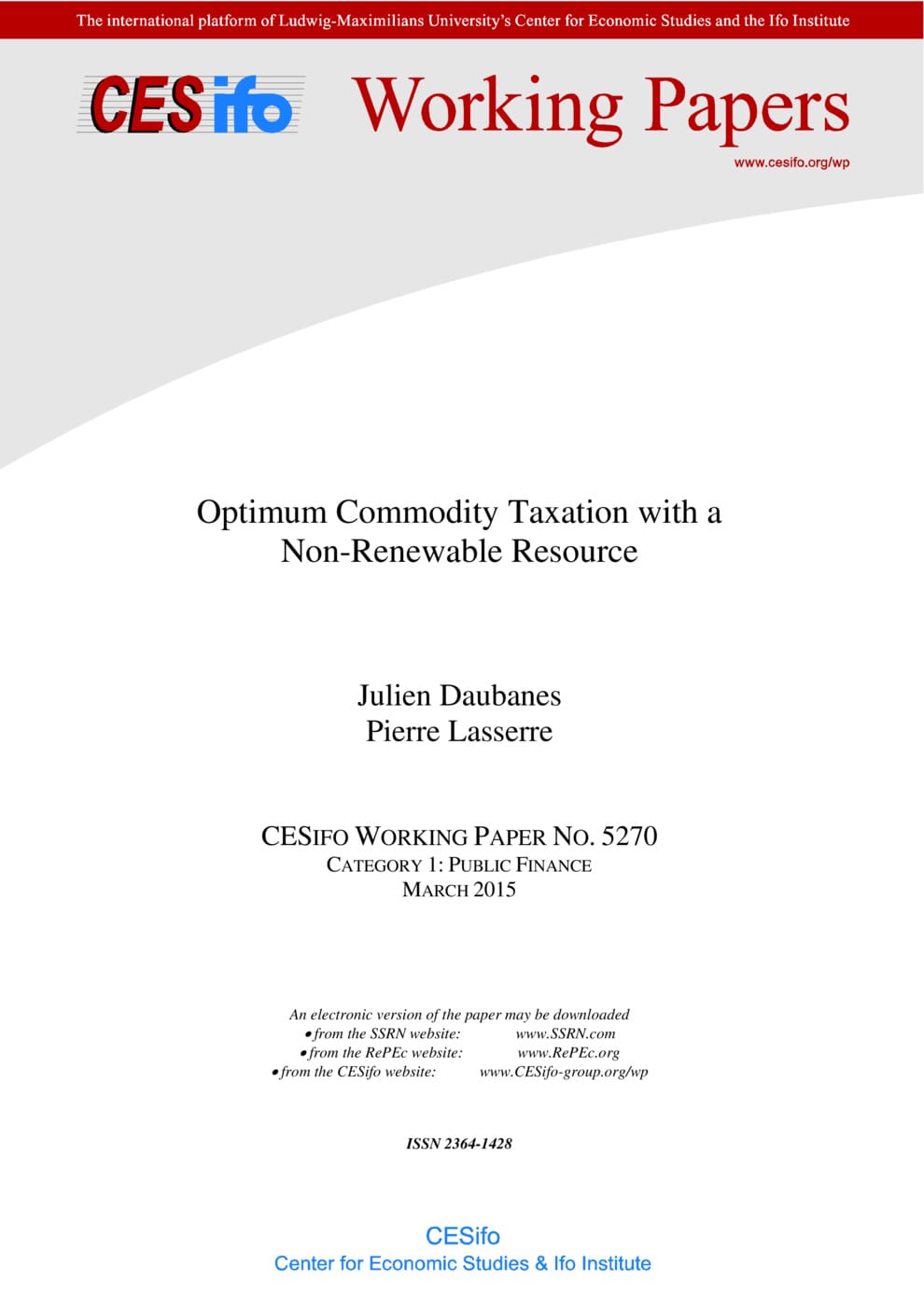Optimum Commodity Taxation with a Non-Renewable Resource
CESifo, Munich, 2015
CESifo Working Paper No. 5270

Under standard assumptions, optimum commodity taxation (OCT) should target non-renewable resources (NRRs) in priority. NRRs should be taxed at a higher rate than otherwise-identical conventional commodities. NRR substitutes and complements should receive a particular tax treatment. When reserves are endogenous, OCT for NRRs distorts both developed reserves, which are reduced, and their depletion, which is slowed down. Reserves are a form of capital and royalties tax its income: our results contradict Chamley’s conclusion that capital should not be taxed in the long run. In a NRR-importing economy, Ramsey taxes are further increased because they allow the capture of foreign rents.
Public Finance
Resources and Environment